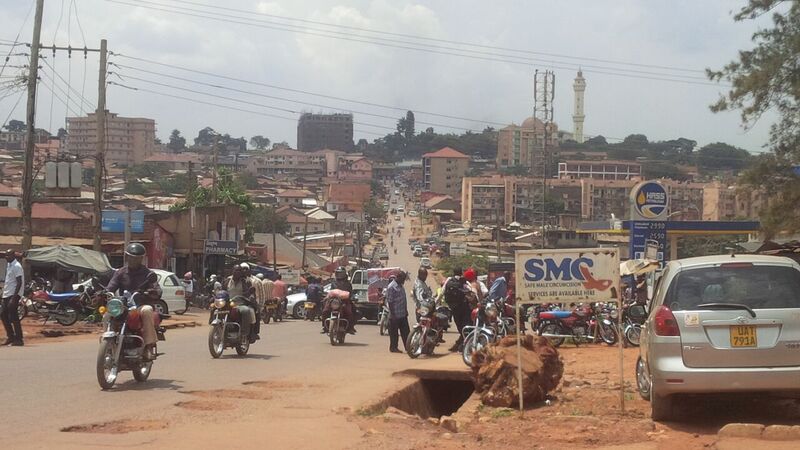Berta doing field work in Uganda. Here she describes her experience in point form.
Pre-departure:
- Visa application
Visa fees (Single entry = $50; Multiple entry = $100).
I advise to choose multiple entry, because the country is surrounded by Kenya, Rwanda, Sudan, Tanzania and Democratic Republic of Congo that are very possible to visit. For instance, from Kampala to Nairobi (Kenya) it is 660 km.
Time for processing: 5 working days, because it is issued in Pretoria.
Requirements: Visa application form, passport (valid for at least 6 months from the proposed date of entry), 1 passport size photo, letter of invitation
- International inoculation certificate against yellow fever must be presented at the point of entry and again at the exit.
- Insurance to handle and assist overseas with travel details (i.e. destination and time covered)
Other important tips:
- Ensure pick-up at the airport, because it is in Entebbe that is a bit far from Kampala (45 min without traffic) or;
- Download Uber app. This service is provided all over in Kampala and suburbs. Not so easy to find up country.
- Money: Cash based society (meaning that usually one needs cash) and though the Uganda Shilling is the currency, the US dollar is also accepted in most of the cases.
- Forex Bureaus are readily available in the downtown area and they charge different exchange rates. Good to check around for the best rate. In case you want to exchange late at night go to Kampala Casino. Avoid the Forex Bureau at the airport (the lowest rate around) You can also check online: www.oanda.com/currency/converter/ .You can also exchange money at a commercial bank and they charge a reasonable rate.
- Banks and ATM machines are easy to find. Check the limit set as per day by your bank. You can also use a VISA card to get money (withdrawal) and swipe your card. Although, most of local shops do not have the option to pay with card due to fees / charges that are incurred by merchants in the country.
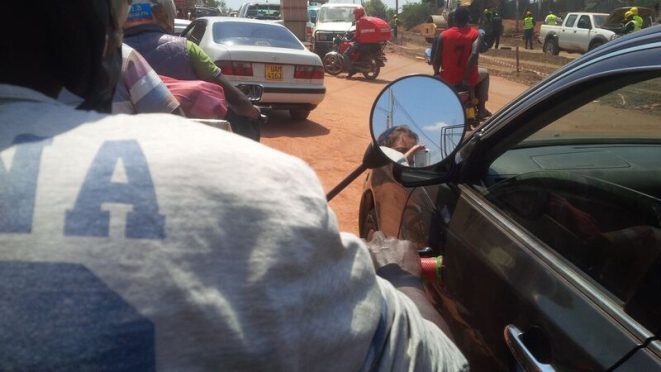
- Motorbike Helmet: The boda boda motorcycle taxis are the main and most efficient way to get around in Uganda. They are faster transport, especially during traffic hours, and they get you to every place. They are also cheaper compared to Uber, but more expensive than normal taxis (a minibus called a “Matatu”) and you always have space to negotiate the price. However, the boda boda can be very risky, because of heavy traffic jams and the unsafe driving of many operators (traffic rules are rarely adhered to and sidewalks becomes sometimes roads) and it is not advised to use boda boda for long distances. I fully recommend to take a helmet and to learn how to say “mpola mpola” that means slowly slowly in Buganda.
Experience at the Host University
- Strikes: Very common either from students or non-teaching and support staff, which affected the University conditions such as access to toilets and cleanliness, and connection to internet. The beginning of the new academic year was postponed because various buildings were closed or did not have conditions to open and, therefore, there were no classes.
- Guild canteen: Most popular canteen at University, moved to senior staff club. The canteen offers affordable and good buffet of local food.
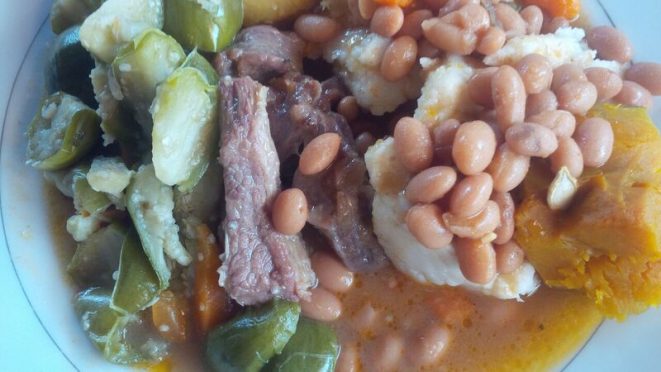
- Accommodation: There are six halls of residence for male students and three for female students; postgraduate hostel and private flats. The accommodation at the hostel is difficult to get. I shared a flat with a staff member on campus which was great. It allowed me to remain on campus and have very good support from the owner – a lecturer of the Arts faculty.
- Fresher’s week: A week for first year students that take place one week before the older students arrive (beginning of September). There are parties around, especially starting Thursday to Saturday. The most famous party is the so called Bazaar. The campus also hosts a number of open events (expositions) usually in front of the Main Administration building where it is possible to find local products and crafts.
- The University campus includes many other facilities such as: sport facilities (including a swimming pool), market for small shopping, ATM and bank branches; photocopying/printing shops; boutique; mobile shops (to by airtime, data, reader cards, etc.). These facilities are open from 7h30 am to 8h00pm.
- Services at St. Francis Chapel behind the Main Administration Building every Sunday at 7am, 9am and 11am. http://stfrancischapelmakerere.org/
- Uganda suffers from persistent and repeated power outages, especially during the rainy season (March till May and October till November) that affect the life of everyone. For instance, printing and photocopying shops cannot operate and outages cause internet problems. I recommend to have a portable backup battery power bank and to maintain a charged battery for your phone and laptop.
- The University has two main gates: The main gate (open 24h) opposite of the supermarket Tuskys (the most affordable supermarket in Ham Towers), and the small gate (that closes at night for cars) that gives access to the Wandegeya area. Both gates have always boda boda and taxis transports available. The University charges a fee of 1000 shillings per car.
- Out of University – Wandegeya – you find the commodities market and the central business district, where the security is high. There are several recreation facilities around that area, such as restaurants, clubs, places to watch sports and informal / street market.
Return to Stellenbosch and How the experience changed my perspective on certain things:
I have been in East Africa before, namely in Kenya and Tanzania and therefore I was familiar with some of the conditions. In Uganda I found it even more interesting. The country includes several tribes/kingdoms that still keep their traditions including language. There are some features as a country that are worth noting:
- The local food is organic, tasty and very cheap.
- Very nice hospitality. Ugandans are polite and very kind in their way of welcoming people, especially up country (Mbale, Kasese, Jinja and Iganda). In addition, it is the youngest country in the world and therefore they are very open minded and keen to know you better. They also enjoy sports and parties and, therefore, it is very easy to find facilities and recreation spots.
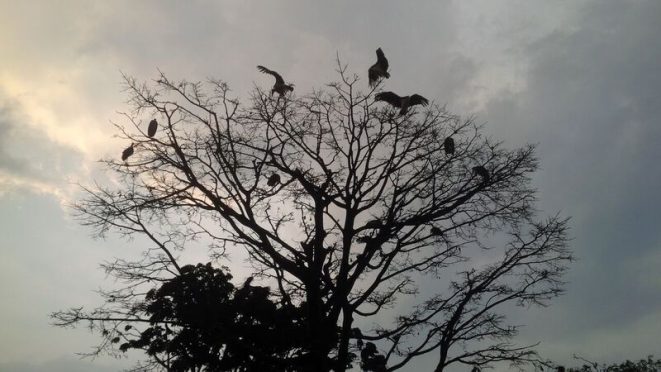
- Is a very green country full of animals and fruit all over – such as bananas, pineapples and avocados. It is possible to find the best bananas and people cook it per various types of recipes. The most popular is the “matoke”.
- The country produces the best coffee in Africa. However, the Ugandans do not consume it, so is not so easy to find a place to take a nice coffee.
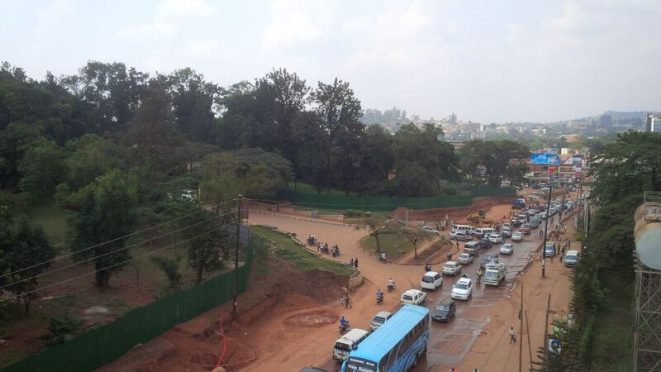
- Kampala is a very historical, but congested city with too much dust. The municipality use to water the roads in order to reduce the amount of dust. However, the scenario is totally different outside the capital, where it is very peaceful and quiet.
- Train lines are spread all over the country and it is easy to see them along the roads. Unfortunately, they are not operating. My impression is that when they start operating the economy of the country will be boosted and will improve many people’s quality of life.
- It is a very safe country where many NGOs operate and the UN is present. As a result of bomb attacks during the Soccer World Cup in July 2010, the security presence has increased.
For what was mentioned above about the country itself and considering my working experience in the NGO sector, this field work made me wish to look for a job in Uganda after concluding my studies. Uganda hosts all types of NGOs that implement a variety of projects funded by many donors. Moreover, the non-profit sector is very developed in terms of regulation and monitoring mechanisms. These conditions will allow me to learn more and gain skills in the field of development.
I enjoyed particularly the security, the food and the hospitality toward foreigners.

